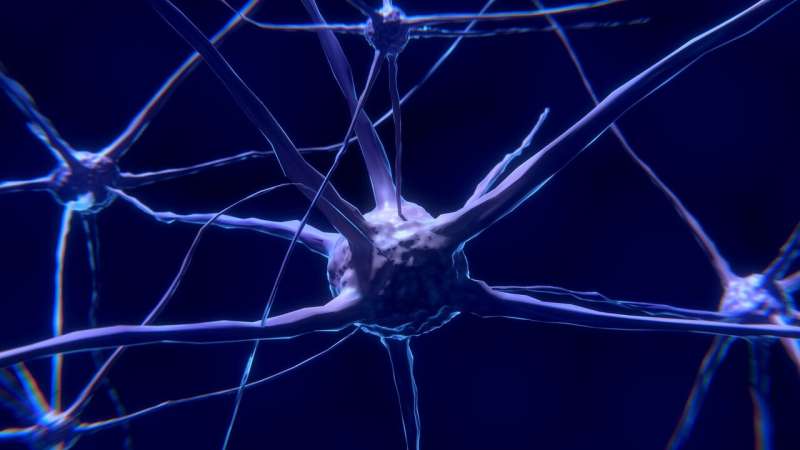Synapse-saving proteins discovered, opening possibilities in Alzheimer's, schizophrenia

Researchers at The University of Texas Health Science Center at San Antonio (UT Health San Antonio) have discovered a new class of proteins that protect synapses from being destroyed. Synapses are the structures where electrical impulses pass from one neuron to another.
The discovery, published July 13 in the journal Nature Neuroscience, has implications for Alzheimer's disease and schizophrenia. If proven, increasing the number of these protective proteins could be a novel therapy for the management of those diseases, researchers said.
In Alzheimer's disease, loss of synapses leads to memory problems and other clinical symptoms. In schizophrenia, synapse losses during development predispose an individual to the disorder.
"We are studying an immune system pathway in the brain that is responsible for eliminating excess synapses; this is called the complement system," said Gek-Ming Sia, Ph.D., assistant professor of pharmacology in UT Health San Antonio's Long School of Medicine and senior author of the research.
"Complement system proteins are deposited onto synapses," Dr. Sia explained. "They act as signals that invite immune cells called macrophages to come and eat excess synapses during development. We discovered proteins that inhibit this function and essentially act as 'don't eat me' signals to protect synapses from elimination."
The system sometimes goes awry
During development, synapses are overproduced. Humans have the most synapses at the ages of 12 to 16, and from then to about age 20, there is net synapse elimination that is a normal part of the brain's maturation. This process requires the complement system.
In adults, synapse numbers are stable, as synapse elimination and formation balance out. But in certain neurological diseases, the brain somehow is injured and begins to overproduce complement proteins, which leads to excessive synapse loss.
"This occurs most notably in Alzheimer's disease," Dr. Sia said.
In mouse models of Alzheimer's disease, researchers have found that the removal of complement proteins from the brain protects it from neurodegeneration, he said.
"We've known about the complement proteins, but there was no data to show that there were actually any complement inhibitors in the brain," Dr. Sia said. "We discovered for the first time that there are, that they affect complement activation in the brain, and that they protect synapses against complement activation."
More information: Qifei Cong et al, The endogenous neuronal complement inhibitor SRPX2 protects against complement-mediated synapse elimination during development, Nature Neuroscience (2020). DOI: 10.1038/s41593-020-0672-0



















